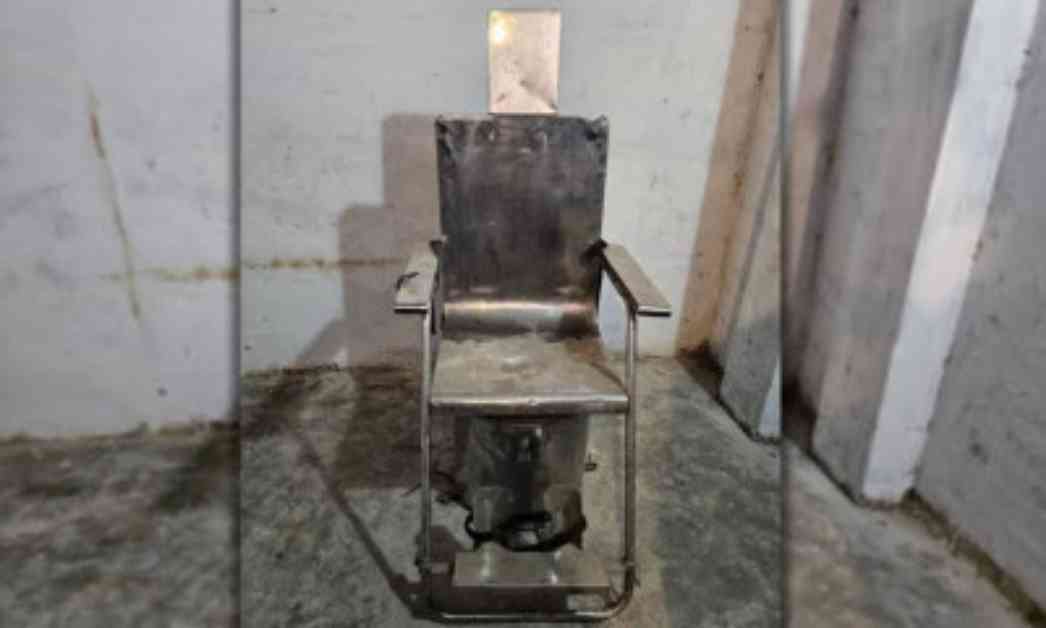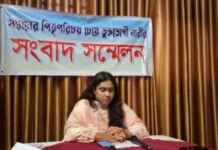Being Buried Alive: A Chilling Tale of Survival
Dhaka, October 9, 2019 – A casual game of football with friends turned into a nightmare for Murad Mehedi. As he headed home that evening, a sudden ambush by seven to eight people from a jeep left him bewildered. The assailants grabbed him, pointed a gun at his back, and snatched his phone. Murad couldn’t forget that day.
Confusion clouded his mind as he was taken to their house. They also confiscated his phone, which held a significance as his father was recovering from a stroke. “I was accused of posting a status about the Kashmir issue, tagging Modi on Facebook,” Murad recounted. Each time he spoke, he felt his breath falter, constantly sipping water.
Arrested under clandestine detention, Murad found himself in a familiar interrogation room at the detention center. During the regime of Prime Minister Sheikh Hasina, such secret detention centers were often used for torture. Many who returned from captivity shared harrowing tales of hidden detention and torture centers, a narrative echoed by Murad.
The ordeal left Murad puzzled about why he was targeted or what crime he committed. Subsequently, on October 12, he was interrogated at the Jamia Sayed Fazlul Karim Madrassa in Narayanganj, where he found himself under the Rapid Action Battalion’s (RAB) custody. Even the head of the madrassa was detained in the operation.
On October 13, Murad was charged under anti-terrorism laws and brought to court. The tribunal sentenced him to 15 years in prison, a verdict his father, who succumbed to mental anguish, couldn’t bear. Murad tearfully admitted, “I couldn’t even see my father’s body.” It wasn’t until February 4, 2021, that he was granted bail.
Recalling his time in custody, Murad found himself repeatedly breaking into tears at the mere mention of the detention center. “Whenever I tried to sleep, they’d wake me up. It was impossible to rest properly,” he shared. Another detainee, Fasiul Alam Bhuiya, apprehended under similar circumstances in 2018, pointed out the sheer mental agony they endured, with electric shocks administered the first day for posting political content on Facebook.
Barrister Mir Ahmed Bin Kashem Arman, a seasoned lawyer, had his own share of detention center experience, a staggering eight-year confinement under DHAKA D.A.S. during Hasina’s government. He vividly described his time, “For 24 hours, my eyes were blindfolded. Hands tied during the day and behind at night.”
Reflecting on his traumatic time, Arman revealed, “I never faced physical torture, but the mental anguish was unbearable, akin to caging a wild animal where no one, not even an animal, should be caged. I never thought I would make it out alive. Many others were with me, and I fear for their fates.”
In August 2022, retired judge Muhammad Yunus explored the depths of the covert detention centers, seeking insights into the chilling accounts of survival. He delved into the horrors of being buried alive, a scenario painted starkly in the confines of a detention cell. The commission’s findings revealed a grim picture, with 172 cases linking to RAB’s involvement in the reported incidents.
As the investigations unfolded, the Human Rights activist Nur Khan Liton underscored the dire need to address the plight of the detainees. “Survivors returning from extended captivity post-government downfall face complex social and economic challenges,” he emphasized. Urging the interim government to prioritize the well-being of these individuals and their families, he stressed on the necessity of comprehensive support and maximum punishment for the perpetrators.
Amidst the shadows of uncertainty, the Government’s GUM Commission was established in August 2021. Focused on the 1752 complaints lodged, the commission’s primary investigations have been completed. Witnessing testimonies of 280 complainants and 45 law enforcement personnel, the whereabouts of 330 current detainees are being probed.
During a press conference in November last year, Commission member Sajjad Hossain disclosed, “Of the 400 cases examined, RAB’s involvement was noted in 172 cases.” The Dhaka Metropolitan Police’s Counter Terrorism and Transnational Crime Unit was implicated in 37 cases. The Detective Branch’s involvement was confirmed in 55 cases. Notably, 26 cases had ties to the Directorate General of Forces Intelligence (DGFI), and 25 cases were linked to the Police. Moreover, 68 incidents involved unidentifiable personnel, suggesting a troubling trend of arbitrary detentions.
Sharing his observation during the press briefing, Nur Khan highlighted the stark reality of detainees’ suffering. “Their mental and physical state has been severely compromised, having endured unspeakable torture. The previous fascist regime has dimmed their once vibrant lives, leaving them in a state of despair,” he lamented. He called for the interim government to provide all necessary support to these victims and their families, ensuring their mental well-being and seeking justice for the wronged.
As the country grapples with the dark legacies of hidden detention centers, the commission continues its quest for truth. The ongoing investigations and revelations shed light on the harrowing experiences faced by detainees, underscoring the urgent need for accountability and justice in the face of such egregious human rights violations.
























